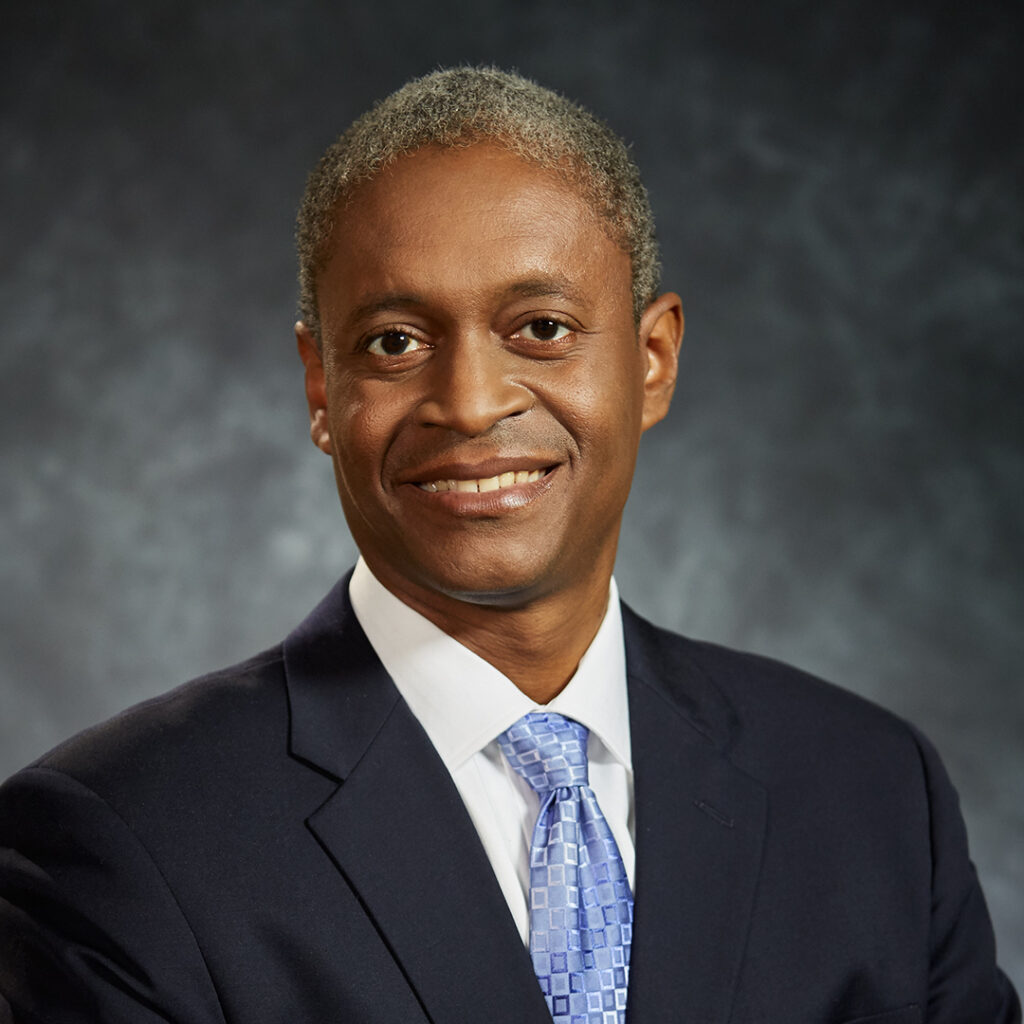Raphael Bostic, president and CEO of the Federal Reserve Bank of Atlanta, provided insight into how his organization understands the current economic climate — and how it may prepare future policy — during a talk at a Terry Third Thursday event in Atlanta.
“The U.S. economy, by most standard metrics, is doing pretty good,” he said. “We’ve been in a growth trajectory for 10 years now coming out of the Great Recession. Unemployment is at historic lows, 3.8 or 3.9 percent — rates we have not seen since the 1960s. Job creation is happening somewhere around 200,000 to 250,000 jobs a month. And we’re not seeing signs of accelerating inflation. This is important because when [the Fed] thinks about the economy, we’re trying to think long-term. We want to make sure the economy is operating in a sustainable way.”
Bostic took his position as the 15th president and CEO of the Atlanta Fed in 2017, after serving on the faculty at the University of Southern California. Prior to that, he was the assistant secretary for policy development and research at the U.S. Department of Housing and Urban Development.
The bank’s policy during the Great Recession needed to be maximally stimulative, he said, but it has since backed off the stimulus in order to let the economy “stand on its own.”
“We’ve moved interest rates back to a more normal position. We’ve starting to back off of quantitative easing,” he said.
“I think we’re close to neutral right now. You’ve probably seen the language we’ve put out recently about how we’re going to be patient and take a pause. A lot of that comes from two things,” he added. “One is that the precise level of neutral is not a specific statistic; it’s something derived from analytical models and from monitoring the marketplace. And so as you get closer and closer to neutral, we need to be more and more careful to make sure we don’t overshoot and take a stance on policy that is actually restrictive.
“The second reason I think going slow is appropriate is because there are a lot of things going on. There are a lot of unknowns and moving factors that, depending on how those things shake out, have real implications for what we should do to help the economy move forward.”
Macroeconomic issues such as U.S. trade relations with China and North American countries will have real policy implications, as will Britain’s exit from the European Union. Until more is known about how those issues play out, Bostic said, crafting a policy pathway would be imprudent.
Even issues close to home are playing out in unknown ways, he added.
“One thing I’ve heard from business owners across the sixth district is that there are real concerns about the availability of workers who have the skills they need for their businesses,” he said. “Immigration has been a source of some of that workforce, and to the extent that that’s been limited, it puts a constraint on what businesses can do.
“There are also questions about how businesses are going to respond to tax reform,” Bostic noted. “They have large reductions in tax liability, and the question is what are they going to do with that money? For us, that’s very important because if they produce new technologies from investments that increase the productive capacity of workers, that will increase the productive capacity of the U.S. economy. … If they do other things that don’t translate into that productivity improvement, we will not expect that growth to be as robust.”

